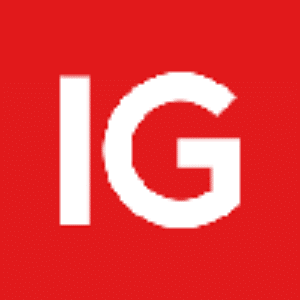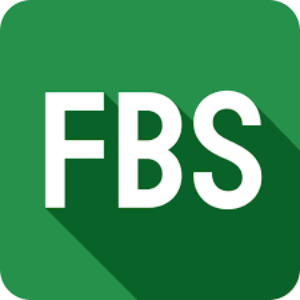
Finding the right forex broker in South Africa is important for the success of a trader. The best forex brokers in South Africa in 2025 are regulated by the Financial Sector Conduct Authority, FSCA, so that a trader can feel safe trading. From the many available options, competitive trading fees, an easy-to-use platform, and reliable customer support are most important.
7 Best Forex Brokers in South Africa: Top Picks for 2025
| Broker | Key Features | Trading Platforms | Best For | Rating |
|---|---|---|---|---|
|
IG Markets
Top Choice
|
|
All Trader Levels | ||
|
Saxo Bank
|
|
Advanced Traders | ||
|
CMC Markets
|
|
All Levels | ||
|
XTB
Award Winner
|
|
User-Friendly Trading | ||
|
FXTM
|
|
New & Seasoned Traders | ||
|
OANDA
|
|
Algorithmic Traders | ||
|
Plus500
|
|
Casual Traders |
Legal and Regulatory Environment

Understanding the legal and regulatory environment in South Africa is crucial for forex trading. The framework is designed to protect traders and ensure fair practices within the market. Key bodies like the Financial Sector Conduct Authority (FSCA) play a significant role in overseeing these regulations.
Understanding FSF and FCSA Oversight
The Financial Sector Conduct Authority (FSCA) is the main regulatory body overseeing financial markets in South Africa. It ensures that financial service providers comply with local laws. The FSCA conducts regular audits and requires brokers to hold specific licenses. This oversight aims to protect traders from fraud and malpractice. Brokers must adhere to the Financial Advisory and Intermediary Act, which mandates fair treatment of clients. Additionally, the Financial Services Board (FSB) was absorbed into the FSCA, enhancing regulatory efficiency. Traders can confirm a broker’s regulatory status by checking if it is registered with the FSCA, ensuring they choose a regulated forex broker.
The Impact of Financial Sector Regulation Act
The Financial Sector Regulation Act is vital for establishing a stable financial environment. This act outlines the powers of the FSCA and emphasizes consumer protection. It promotes transparency in forex trading and requires brokers to disclose fees and risks clearly. Traders benefit from improved standards of service and reduced potential for scams. Compliance with the regulation helps maintain integrity in the forex market. For instance, brokers that are regulated under this act must have specific financial health checks, ensuring they can meet client obligations. This regulation is crucial as it reassures traders that they are dealing with trustworthy firms. Knowledge of this act is essential for any trader looking to engage in forex trading legally in South Africa.
Evaluating Broker Qualities

When choosing a forex broker, several key qualities should be assessed. I will focus on the importance of trading platforms, account types, commission structures, and leverage offers. Each element plays a significant role in determining the overall trading experience and suitability for different traders.
Comparing Trading Platforms
The trading platform is the primary interface for executing trades. Popular platforms include MetaTrader 4 (MT4), MetaTrader 5 (MT5), and cTrader. I find that these platforms offer user-friendly features such as advanced charting tools, market analysis capabilities, and automated trading options.
MT4 is favored for its simplicity, while MT5 provides additional features like more timeframes and depth of market. cTrader is known for its intuitive design and enhanced execution speeds. Ensuring the platform has a mobile app can also enhance convenience for on-the-go trading.
Account Types and Minimum Deposits
Different forex brokers offer various account types tailored to individual traders. I usually look for accounts that cater to beginners, as well as more advanced traders. Many brokers provide demo accounts for practice without risk.
Minimum deposit requirements can vary significantly. Some brokers allow for low minimum deposits, making it easier for newcomers to start. I prefer brokers that offer flexible account options and transparent terms on minimum deposits, as this provides a clearer path for engaging with the forex market.
Reviewing Commission and Fees Structures
Understanding the fee structure is vital when evaluating a broker. I generally examine commissions, spreads, and any other trading fees that might apply. Some brokers charge a commission per trade, while others offer zero-commission trading but may widen the spread.
I also pay attention to inactivity fees, swap fees, and conversion fees, which can add up over time. Low spreads are typically more favorable for traders, especially for those who engage in frequent trading. A transparent fee schedule helps avoid surprises later on.
Assessing Leverage and Spreads
Leverage allows me to control larger positions with a smaller capital outlay. I find it important to choose a broker that offers suitable leverage levels while also being aware of the associated risks. High leverage can amplify both gains and losses.
Spreads, which represent the difference between buying and selling prices, also impact trading costs. I seek brokers that offer competitive spreads, as this can reduce the overall cost of trading. A combination of reasonable leverage and low spreads contributes to more effective trading strategies.
7 Best Forex Brokers in South Africa

When choosing a forex broker, South African traders have many options. Below, I have explored a few of the top brokers that stand out for their features, user experience, and services tailored for local needs. Read through and look a each of their features to determine the best one for yourself.
IG Markets
- Overview: IG Markets stands out as a leading figure in the forex trading industry, renowned for its robust trading platforms and a diverse range of trading instruments. It caters to traders of all levels, from beginners to experts, by providing a stable and feature-rich trading environment.
- Key Features:
- Global Regulation: IG is regulated by several top-tier authorities worldwide, ensuring a high standard of trade practices and safety for client funds.
- Educational Resources: Offers extensive educational tools, including webinars, tutorials, and articles to help traders refine their trading skills.
- Advanced Trading Platforms: Provides access to advanced trading platforms such as MetaTrader 4 and its proprietary platform, which offer powerful trading tools and analytics.
Saxo Bank
- Overview: Saxo Bank is highly favored among advanced traders, offering a professional-grade platform that caters extensively to high-volume traders. The bank provides access to a vast range of markets, not limited to forex, including stocks, bonds, and even cryptocurrencies.
- Key Features:
- Professional Trading Platform: SaxoTraderGO and SaxoTraderPRO are well-regarded for their robust functionality, catering to both casual and serious traders.
- Market Access: Offers a broad spectrum of trading instruments across global financial markets.
- Research and Data: Traders benefit from comprehensive market research and actionable trading insights.
CMC Markets
- Overview: CMC Markets is known for its competitive spreads and access to a wide range of trading instruments. The broker’s commitment to technology and customer service makes it a popular choice among traders of all levels.
- Key Features:
- Next-Generation Trading Platform: The platform features advanced charting tools, automated trading capabilities, and integrated news and market analysis.
- Spread and Cost Structure: Offers some of the most competitive spreads in the industry, enhancing trading profitability.
- Customer Support: Provides robust customer service with a focus on enhancing user experience and trader education.
XTB
- Overview: XTB has carved a niche for itself with its fast execution speeds, transparent pricing, and user-friendly trading environment. Its award-winning platform, xStation 5, is particularly noted for its performance and ease of use.
- Key Features:
- xStation 5: Known for its intuitive design, fast execution, and comprehensive trading tools.
- Transparent Pricing: XTB ensures clear and straightforward pricing without hidden costs.
- Education and Support: Offers a wealth of educational resources and customer support to assist traders in navigating forex markets.
FXTM (ForexTime)
- Overview: FXTM is celebrated for its flexible trading conditions and a wide range of account types that serve both new and seasoned traders. The broker focuses on delivering tailored trading experiences.
- Key Features:
- Flexible Leverage: Provides leverage options that can maximize trading potential while keeping risks in check.
- Diverse Account Types: Offers multiple account types, including ECN, Standard, and Cent accounts, to cater to various trader needs and strategies.
- Local and International Presence: Strong regulatory framework and local offices in several countries to support traders worldwide.
OANDA
- Overview: OANDA is esteemed for its industry reputation, reliable execution, and transparent pricing. The platform is especially friendly for algorithmic traders, offering powerful automation tools and comprehensive data analysis.
- Key Features:
- Algorithmic Trading: Supports advanced algorithmic trading strategies with robust technical analysis tools.
- Regulatory Compliance: Strong adherence to regulatory standards ensures a secure trading environment.
- Market Research: Provides detailed market analysis and trading insights to inform traders’ strategies.
Plus500
- Overview: Plus500 offers an uncomplicated trading platform that’s easy to use, making it ideal for casual traders who require access to various financial markets quickly and efficiently.
- Key Features:
- Intuitive Trading Platform: The Plus500 platform is designed for ease of use, facilitating quick access to global financial markets.
- Risk Management Tools: Provides features such as stop-losses, which are essential for new traders to manage risks effectively.
- Instrument Diversity: Traders can access a variety of markets, including forex, stocks, commodities, and more, all from one platform.
Each of these brokers offers unique features that cater to different types of traders, from those who are just starting out to experienced professionals looking for sophisticated trading tools and comprehensive market access.
Trader Resources and Support

In the world of forex trading, having the right resources and support can greatly affect a trader’s success. Key aspects include educational materials that help traders build knowledge and effective customer support to assist them with their trading needs.
Educational Materials for Traders
Having access to good educational materials is essential for traders. Many brokers offer a range of resources, such as webinars, eBooks, and articles. They help traders understand trading strategies, market analysis, and risk management tools.
A demo account is also a vital resource. It allows traders to practice their skills without risking real money. I recommend using demo accounts from reputable brokers to gain valuable experience and confidence in trading. Some brokers even provide trading signals that give insights into market movements, which can be beneficial for strategy development.
Additionally, many platforms offer tailored educational resources for beginners, helping them learn the basics of trading in a user-friendly manner. Engaging with these materials can make a significant difference in a trader’s ability to make informed decisions.
Analyzing Customer Support Services
Effective customer support is critical for any trader facing issues or needing guidance. I emphasize checking the availability and responsiveness of customer service teams when selecting a broker.
Top brokers typically offer multiple support channels, including live chat, phone support, and email options. This variety allows traders to choose their preferred way of getting help.
Furthermore, I look for brokers that provide educational support alongside their customer service. Having knowledgeable representatives who understand trading can make troubleshooting easier. This ensures that I receive accurate information when I face challenges or have questions about trading tools and platforms.
Understanding Trading Instruments

Trading instruments play a vital role in forex trading. They include various products that traders use to execute their strategies. Knowing how these instruments work helps in making informed decisions.
Forex Pairs and CFDs
Forex pairs are the most common instruments in the trading world. They represent the value of one currency against another. For example, in the EUR/USD pair, the euro is compared to the US dollar. Understanding major pairs, like GBP/ZAR or USD/ZAR, is essential for South African traders since the South African rand (ZAR) plays a significant role in local trading.
Contracts for Differences (CFDs) allow traders to speculate on asset price movements without actually owning the asset. This includes stocks, indices, and commodities. CFDs are popular due to their flexibility and leverage options, but they also carry high risk. Understanding the differences between forex pairs and CFDs can help traders choose the instrument that fits their strategies best.
Cryptocurrency Offerings
Cryptocurrencies are emerging as popular trading instruments. Many forex brokers now offer trading options for various cryptocurrencies, including Bitcoin, Ethereum, and Litecoin. Cryptocurrencies can be more volatile than traditional forex pairs, presenting both opportunities and risks.
When choosing a broker, I make sure to check their cryptocurrency offerings to ensure a diverse trading experience. Trading cryptocurrency requires understanding the market’s unique dynamics, as prices can fluctuate rapidly. In South Africa, regulations around cryptocurrency trading are still evolving, so it’s wise to use a broker regulated by the Financial Sector Conduct Authority (FSCA) for safety and compliance.
Technology and Platform Features

Technology plays a crucial role in trading, especially in the forex market. With numerous platforms available, traders can choose tools that best suit their needs. Below, I will cover popular trading platforms and their key features, along with essential charting and analysis tools.
Popular Trading Platforms and Apps
One of the most recognized platforms is MetaTrader 4 (MT4), known for its user-friendly interface and robust features. It offers automated trading capabilities through Expert Advisors. On the other hand, MetaTrader 5 (MT5) improves upon MT4 by including additional assets and advanced charting tools.
cTrader is another popular option, favored for its intuitive design and fast execution speeds. Traders appreciate its ability to connect to ECN accounts, allowing for direct market access. Many brokers, such as IC Markets, offer platforms that cater to both beginners and experienced traders, providing a variety of mobile trading apps for convenience.
Advanced Charting and Analysis Tools
Effective trading relies on solid analysis, and advanced charting tools make this simpler. Platforms like TradingView provide extensive charting capabilities with customizable indicators. I find these tools useful for monitoring market trends and making informed decisions.
Having the right tools for technical analysis, like those available on MT4 and MT5, allows me to evaluate price movements accurately. Features such as historical data, drawing tools, and various chart types enhance my trading strategy. These analytical tools are vital for navigating the complexities of the forex market, ensuring I stay competitive.
Banking and Finance Considerations

When trading forex in South Africa, it’s essential to understand banking and finance aspects. This includes familiarizing myself with deposit and withdrawal procedures, as well as fees related to swap and rollover.
Deposit and Withdrawal Procedures
For South African traders, choosing a broker that offers easy deposit and withdrawal methods is crucial. Many brokers accept the South African Rand (ZAR), making transactions more straightforward.
Most platforms allow deposits via bank transfers, credit/debit cards, and even e-wallets. It’s essential to check if the broker charges any deposit fees.
Withdrawals should also be hassle-free. I look for brokers that process withdrawals quickly, ideally within 24 hours. It’s wise to note the withdrawal methods offered, as some may take longer than others. For added security, I ensure the broker is regulated by the Financial Sector Conduct Authority (FSCA).
Understanding Swap and Rollover Fees
Swap and rollover fees play a vital role in forex trading. These fees are incurred when positions are held overnight and vary by broker and currency pair. It’s important to understand that these fees can impact overall trading costs.
Many brokers disclose swap rates on their platforms. I must pay attention to positive or negative swaps, as they can either benefit or cost me money. For instance, holding a position with a positive swap can generate additional income.
As a trader, I also stay vigilant against potential forex scams, ensuring that any broker I choose operates transparently regarding fees. Understanding these financial considerations helps me make informed decisions while trading.
Industry Insights
In exploring the forex brokerage landscape in South Africa, it’s important to examine key elements that impact brokers’ credibility and performance. Analyzing broker reviews and trust scores, as well as comparing local and offshore brokers, are essential for making informed trading choices.
Analyzing Broker Reviews and Trust Scores
Broker reviews are crucial for understanding how brokers are perceived in the market. I look for platforms that aggregate user experiences and provide detailed ratings. Trust scores are often a reflection of a broker’s reliability, defined by factors like regulatory compliance and user feedback.
Many South African forex brokers are regulated by the Financial Sector Conduct Authority (FSCA). This regulation ensures that brokers operate under strict guidelines, enhancing security for traders. A broker’s trust score can also indicate its transparency regarding fees, trading conditions, and customer service. I pay attention to brokers that are consistently rated high for these factors, as this often correlates with a lower risk of issues for traders.
Comparing Local Vs Offshore Brokers
When choosing between local and offshore brokers, I consider several factors. South African brokers offer the advantage of being regulated by local authorities. This can mean more consumer protection and better risk management due to strict oversight from the FSCA.
On the other hand, offshore brokers might provide competitive spreads and a wider range of trading options. However, I find that some of these brokers could lack the same level of regulation, which increases risk. It’s essential to do thorough research on any offshore broker before investing. I often check if these brokers accept South African clients and if they provide adequate support and security measures.
Conclusion
Selecting the right forex broker is a pivotal decision for any trader, especially in a dynamic market like South Africa. The brokers listed in this article represent the cream of the crop in terms of regulatory compliance, trading technology, and customer support. They offer robust platforms that cater to both novice and experienced traders, ensuring that a broad spectrum of trading needs are met.
When choosing a broker, it’s essential to consider your trading style and needs. Do you require low spreads, high leverage, or a particular kind of trading platform? Are educational resources something you value? Each broker has unique strengths and weaknesses, and the best choice will depend on your individual trading goals and strategies.
It’s also crucial to ensure that any broker you choose is regulated by the Financial Sector Conduct Authority (FSCA) to guarantee the security of your investments. With the right broker, proper risk management, and a clear understanding of the forex market, traders can effectively navigate the complexities of forex trading in South Africa.
Armed with this comprehensive guide, you are better prepared to select a broker that not only meets your trading needs but also enhances your trading experience. Whether you are embarking on your trading journey or looking to switch to a broker that better suits your advanced trading techniques, these top picks provide a reliable starting point. Remember, the goal is to partner with a broker that supports your trading journey with the right tools, insights, and support systems.
Frequently Asked Questions
This section addresses common queries about the forex market in South Africa. I will cover aspects like top brokers for beginners, legal considerations, and minimum deposit requirements, among others.
What are the top-rated forex brokers for beginners in South Africa?
For beginners, brokers like IC Markets and FXTM are often mentioned. They offer user-friendly platforms and educational resources. Such features help newcomers learn the basics of forex trading effectively.
Which forex traders are recognized as the best in Africa?
Traders like Biltong Trader and Markus Ntabang have gained recognition for their strategies. They share insights and help others understand the dynamics of forex trading in Africa. Their success stories motivate many aspiring traders.
What are the criteria for reviewing forex brokers in South Africa?
I look for several key criteria when reviewing brokers. Regulation by the FSCA is crucial, as it ensures safety for traders. Other important factors include trading fees, customer service, and available trading platforms and tools.
Are there any brokers in South Africa offering a $1 minimum deposit?
Yes, there are some brokers that allow low minimum deposits. Platforms like Exness and FBS may offer accounts starting with just $1. This makes it easier for new traders to get started with minimal risk.
Can South African traders legally use international forex brokers?
South African traders can use international brokers, but they must ensure these brokers are regulated. Trading is legal in South Africa, but working with regulated brokers from abroad can provide additional security.
Which local brokers in South Africa provide high leverage options?
Several local brokers, such as Pepperstone and FXTM, offer high leverage options. This can be appealing for traders looking to maximize their potential profits, though it also comes with increased risk.









